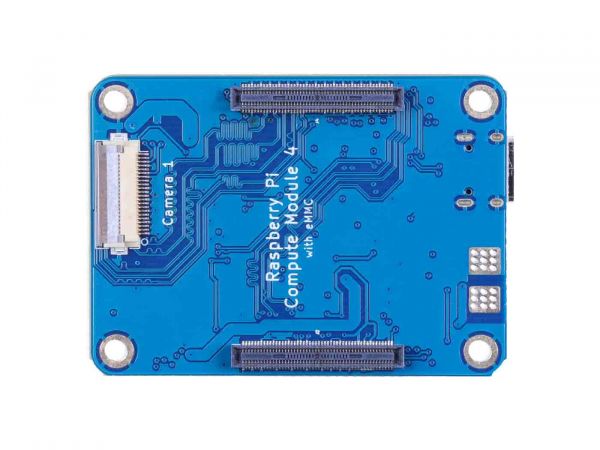The open source, ultra-compact Compute Module 4 carrier board will now be sold commercially by Seeed Studio thanks to a deal.
Flavio Ansovini has introduced a carrier board for the Raspberry Pi Compute Module 4 with a twist: the little Ochin CM4 is designed exclusively for applications with limited space, such as robotics and drone automation, and it is now accessible under an open licence.
Ansovini describes his invention, the Ochin CM4, as a compact carrier board for the Raspberry Pi Compute Module [4]. "It is intended for uses in which a strong machine with minimal power requirements and compact dimensions is needed. In applications like robots, home automation, and IoT (Internet of Things), where there is limited space and weight containment is crucial, the compact form factor makes it appealing."
The basic Ochin design, also known as the "öchn CM4", was initially published more than a year ago under an open licence, but those who wanted to utilise it were mostly left developing their own. CNX Software brought this to our notice. Ansovini and Seeed Studio have now entered into a contract, under which the latter will be granted a licence to produce and market completely finished carrier boards while Ansovini will take care of technical support.
The Ochin CM4's compact size, which shares space with the Raspberry Pi Compute Module 4 it's intended to host, is one of its primary advantages. It works with all full-fat Compute Module 4 models but is incompatible with Compute Module 4 Lite versions since they don't have onboard eMMC storage because they don't have a MicroSD slot.
The Raspberry Pi CM4's built-in Wi-Fi and Bluetooth radios handle networking, and the carrier has a single USB 2.0 Type-C port for eMMC flashing, four USB 2.0 GHS connections, one two-lane and one four-lane MIPI CSI camera port, three UARTs, one USART, one I2C bus, and analogue video output. The board can accept lithium-polymer batteries with a capacity of 2S to 6S and an input voltage ranging from 7.5V to 28V.
The Raspberry Pi CM4's built-in Wi-Fi and Bluetooth radios handle networking, and the carrier has a single USB 2.0 Type-C port for eMMC flashing, four USB 2.0 GHS connections, one two-lane and one four-lane MIPI CSI camera port, three UARTs, one USART, one I2C bus, and analogue video output. The board can accept lithium-polymer batteries with a capacity of 2S to 6S and an input voltage ranging from 7.5V to 28V.
A 3D-printable tool that makes it simpler to remove a Raspberry Pi Compute Module 4 from the carrier without harming the high-density mezzanine connectors is also available on the project's GitHub repository under the reciprocal GNU General Public License 3. The board is currently available for purchase from Seeed Studio for $59.90 without the Raspberry Pi Compute Module 4.


















0 Comments